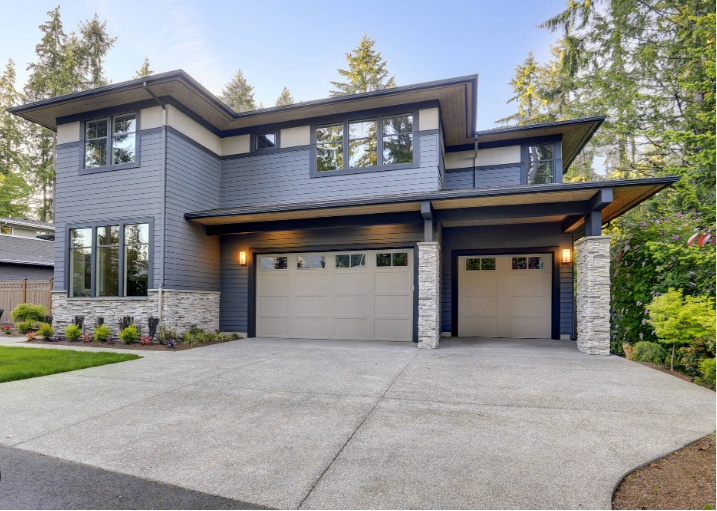All You Need to Know about Closing Costs

When buying a house, one of the significant expenses to anticipate are the mortgage closing costs, which are due on the closing day. Here’s a breakdown of what these costs entail and how much you might expect to pay.
What are closing costs?
Closing costs encompass all the fees associated with applying for and finalizing a mortgage and real estate transaction. These costs can be divided into two main categories: those related to the property itself and those associated with the mortgage lender’s services and the necessary paperwork.
In a typical home sale, both buyers and sellers incur closing costs. Sellers generally have these costs deducted directly from their sale proceeds, while buyers usually cover their portion out of pocket.
How much are closing costs?
Mortgage closing costs generally range from 2% to 5% of your total loan amount. The exact amount you will pay depends on several key factors:
- Home Price: The higher the home price, the higher the closing costs.
- Location: Closing costs can vary significantly based on where you buy or refinance.
- Type of Transaction: Costs differ whether you’re purchasing a new home or refinancing an existing mortgage.
According to the latest data from ClosingCorp for 2021, the average closing costs for buying a single-family home were $6,905. For refinancing, the average cost was $2,375.
These costs can vary widely across different regions due to local taxes and fees. For example, in Washington, D.C., buyers faced the highest average closing costs at $29,888. Delaware and New York followed with averages exceeding $16,000. On the other end of the spectrum, states like Missouri ($2,061), Indiana ($2,200), and North Dakota ($2,501) had some of the lowest closing costs.
What is included in closing costs?
Closing costs encompass a range of fees and expenses associated with finalizing a real estate transaction. Here’s a breakdown of what may be included:
Common Closing Costs:
- Application Fee: Fee for processing the loan application.
- Credit Check Fee: Cost for obtaining your credit report.
- Origination Fee: Charge for processing the loan, typically 0.5% to 1% of the loan amount.
- Underwriting Fee: Fee for evaluating your financial qualifications.
- Appraisal Fee: Cost for assessing the home’s value, usually between $300 and $425.
- Property Survey Fee: Expense for surveying the property boundaries.
- Title Search Fee: Cost for examining property records to ensure clear ownership, around $300.
- Title Insurance Policy: Insurance to protect against ownership issues, generally 0.50% to 1% of the mortgage amount.
- Attorney Fee: Cost for legal services, if applicable.
- Discount Points: Optional fees paid to reduce the mortgage interest rate, typically 1% of the loan amount per point.
- Prepaid Items: Includes homeowners insurance premiums, mortgage insurance premiums, property taxes, and/or homeowners association (HOA) fees.
- Per-Diem Interest: Interest accrued from the closing date to the end of the month.
- Real Estate Agent Commissions: Fees for the services of real estate agents (typically paid by the seller).
- Transfer Tax: Tax imposed when ownership of the property changes.
- Recording Fee: Fee for registering the property sale with local authorities.
Who pays closing costs?

The buyer typically covers the majority of closing costs, while the seller is responsible for certain expenses, such as real estate agent commissions. As a buyer, you may be able to negotiate having some of your closing costs covered by the seller, but this is generally possible only if the seller does not have other competing offers.
Closing costs paid by the buyer
- Appraisal Fee: This fee covers the cost of a licensed appraiser assessing the home’s value. The average appraisal fee for a single-family home ranges from $300 to $425, according to HomeAdvisor. Although this is categorized as a “closing” cost, it is usually paid before the actual closing day.
- Title Search: For non-new construction homes, the lender will require a title company to search property records to identify any potential issues with the home’s title, such as tax liens. The fee for a title search is approximately $300.
- Title Insurance: Lenders mandate title insurance to protect against future issues with ownership. This insurance typically costs between 0.50 percent and 1 percent of the mortgage amount and protects the lender.
- Origination Fee: This fee, charged by lenders for processing the loan, generally ranges from 0.5 percent to 1 percent or more of the loan amount.
- Underwriting Fee: This fee covers the cost of assessing and verifying your financial qualifications. It can be a flat fee or a percentage of the loan, often around 0.5 percent.
- Points: To reduce your mortgage interest rate, you might choose to pay points, or discount points. Each point typically costs 1 percent of the loan principal and can lower the interest rate by about 0.25 percent.
- Home Inspection: While not always mandatory, a home inspection is highly recommended to identify any potential issues with the property before purchase.
- Attorney Fees: There may be additional costs associated with hiring a mortgage closing attorney.
Closing costs paid by the seller
- Transfer Tax: In many states, a transfer tax is levied when real estate is sold. Typically, the seller is responsible for this tax, although in some areas, the cost may be shared with the buyer.
- Other Fees: Sellers may also cover certain fees similar to those paid by buyers, including attorney fees and prorated property taxes.
How to lower your closing costs
While you can’t avoid all mortgage closing costs, you can often negotiate some of them to save money. Here are a few strategies to consider:
1. Look for Lenders Offering Discounts: Seek out mortgage lenders who waive or reduce the origination fee. If you’re obtaining your mortgage through your bank, inquire about potential discounts or fee waivers since you’re an existing customer.
2. Apply for Down Payment Assistance: If you’re a first-time homebuyer, investigate down payment assistance programs and grants that can help cover closing costs. These programs can provide significant financial relief.
3. Consider a No-Closing-Cost Loan: Explore no-closing-cost mortgages, but be aware that these may come with trade-offs. While you won’t pay closing costs upfront, you’ll either finance them into the mortgage (and pay interest on them) or accept a higher interest rate.
4. Negotiate Seller Concessions: In some cases, sellers may agree to cover part of your closing costs to facilitate the sale. The allowable amount of seller concessions varies by loan type:
- Conventional loans can receive up to 9% of the purchase price or appraised value, whichever is lower.
- FHA and USDA loans allow up to 6%.
- VA loans permit up to 4%.
- Jumbo loans have varying limits based on the lender.
Using these strategies can help reduce the financial burden of closing costs and make your home purchase more affordable.


